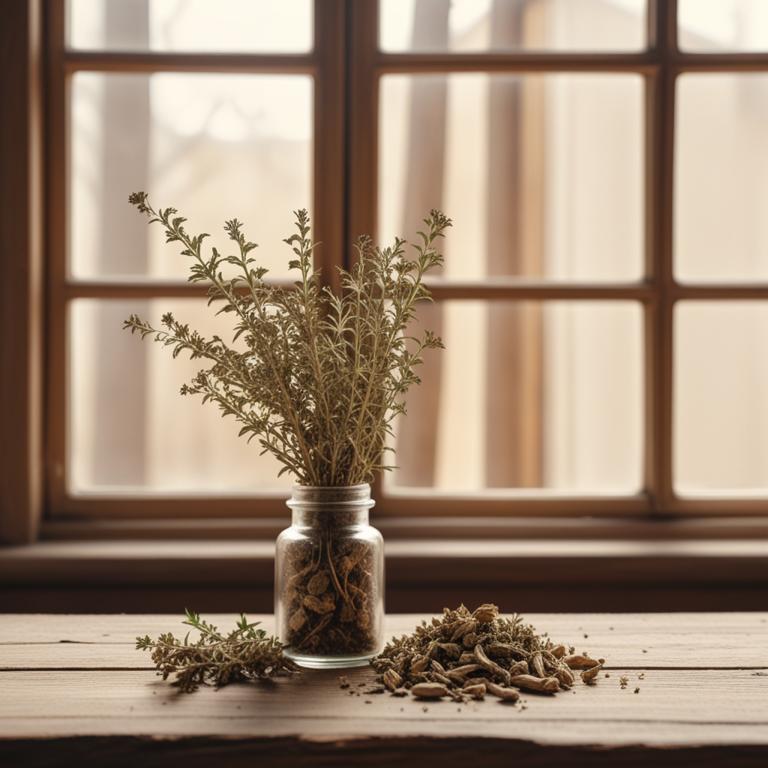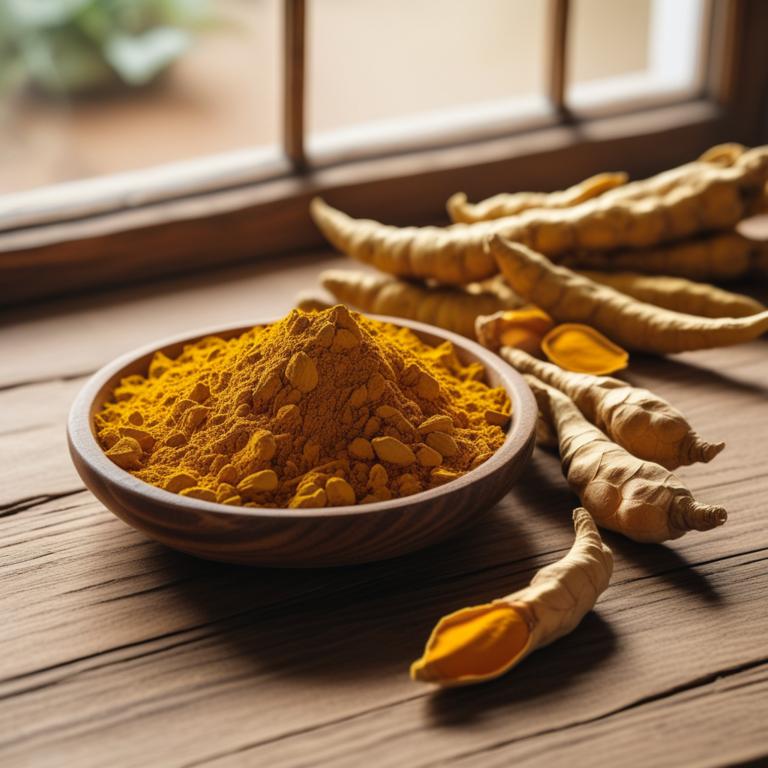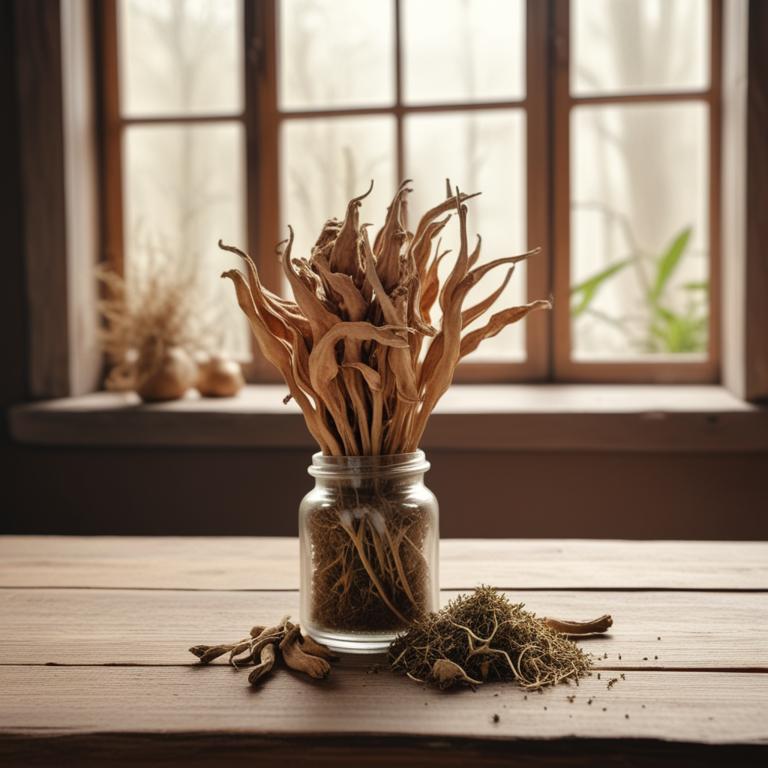Updated: Dec 1, 2024
Understanding and Treating Leg Cramps with Medicinal Herbs
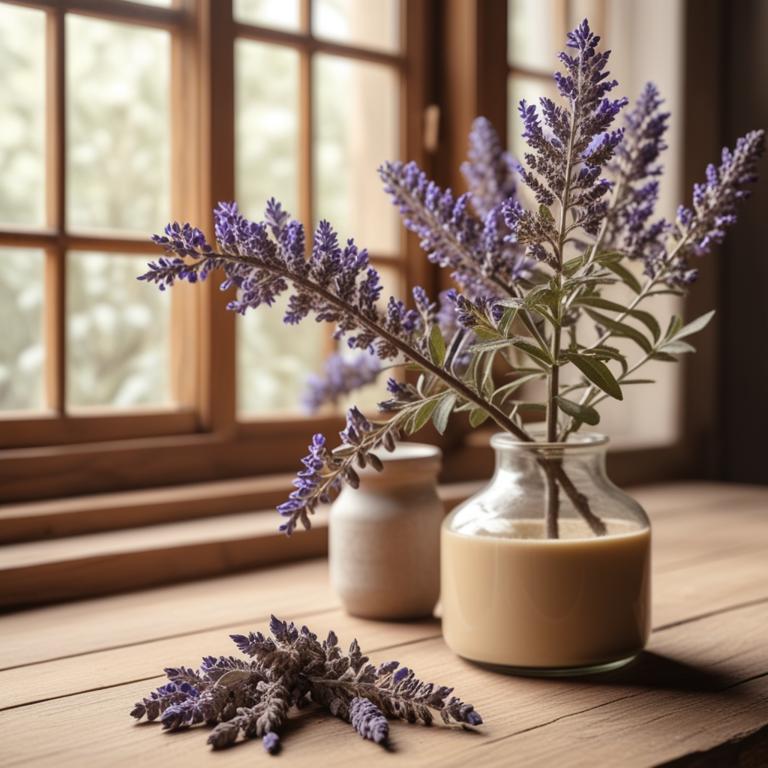
Leg cramps can be a painful and debilitating condition that affects many people, especially as they age.
These sudden, intense muscle spasms in the legs can make it difficult to walk, sleep, or even perform daily tasks. They can be triggered by various factors, such as dehydration, mineral deficiencies, and muscle fatigue. Some people may also experience leg cramps due to underlying medical conditions, such as kidney disease or nerve damage. Fortunately, herbal remedies can provide relief from leg cramps.
Herbs like ginger, turmeric, and cayenne pepper have anti-inflammatory properties that can help ease muscle spasms. The root of the ashwagandha plant is also known for its ability to calm the nervous system and reduce muscle tension. These herbs can be consumed as teas, which can be made by steeping the dried roots or leaves in hot water. They can also be taken in capsule or powder form. Another option is to add ginger and turmeric to warm compresses or baths, which can help relax the muscles and reduce pain.
Additionally, some herbal supplements, like magnesium and potassium, can help alleviate leg cramps by replenishing essential minerals in the body.
Table of Contents
What are the reasons behind leg cramps?
The main causes of leg cramps are related to imbalances in essential nutrients and fluids in the body.
One of the main causes is dehydration - when the body loses more fluids than it takes in, it can lead to an imbalance in electrolytes like sodium, potassium, and chloride. This can cause muscle cramps, including leg cramps. Another common cause is a magnesium deficiency. Magnesium is a mineral that helps muscles relax and function properly. When levels of magnesium are low, muscles can become overactive and contract, leading to cramps. Potassium deficiency is also a significant cause of leg cramps.
Potassium is an electrolyte that helps regulate muscle function and contraction. When potassium levels are low, muscles can become weak and prone to cramping. Calcium deficiency can also contribute to leg cramps. Calcium is a mineral that helps regulate muscle function and contraction, and plays a role in nerve function. When levels of calcium are low, muscles can become overactive and contract, leading to cramps. Lastly, vitamin D deficiency has been linked to leg cramps. Vitamin D is essential for maintaining healthy bones and muscles, and low levels of vitamin D have been associated with muscle weakness and cramping.
Note: It's worth noting that these imbalances can be caused by a variety of factors, including diet, lifestyle, and underlying health conditions.
What benefits can be derived from using herbs to prevent leg cramps?
Using herbs for leg cramps can be a great natural solution.
One of the main benefits is that they can help relax the muscles and reduce spasms. This is because certain herbs have properties that calm the nervous system and promote relaxation.
As a result, you may experience less frequent and severe leg cramps. Additionally, these herbs can also help improve blood flow and reduce inflammation, which can contribute to leg cramps. Some herbs may also provide a boost of essential nutrients, which can help maintain overall muscle health.
By incorporating herbs into your daily routine, you may find that you're able to manage leg cramps more effectively and reduce your reliance on medication.
What are the top medicinal herbs for leg cramps?

Herbs like Zingiber officinale, also known as ginger, are good for leg cramps because of its anti-inflammatory properties.
Ginger can help reduce swelling and ease pain in the muscles. This makes it a popular remedy for cramps and soreness. Magnolia officinalis, a plant commonly used in traditional Chinese medicine, has been found to relax muscles and reduce spasms. It's thought to work by regulating the body's nervous system and reducing anxiety, which can contribute to muscle cramps. Valeriana officinalis, or valerian root, is another herb that can help with muscle relaxation. It contains compounds that can calm the nervous system and promote a good night's sleep, which is essential for muscle recovery.
By promoting relaxation and reducing muscle tension, valerian root can help alleviate leg cramps. Glycyrrhiza glabra, or licorice root, has anti-inflammatory properties that can help reduce swelling in the muscles. It's also thought to help regulate the body's electrolyte balance, which is important for maintaining healthy muscle function. Citrus reticulata, the mandarin orange, contains a compound called naringenin, which has anti-inflammatory properties. It can help reduce pain and inflammation in the muscles, making it a useful herb for relieving leg cramps. In traditional medicine, these herbs are often combined to create remedies for muscle cramps and soreness.
By using these herbs, you can help reduce inflammation, promote muscle relaxation, and alleviate pain associated with leg cramps.
What are the top herbal products used to alleviate leg cramps?
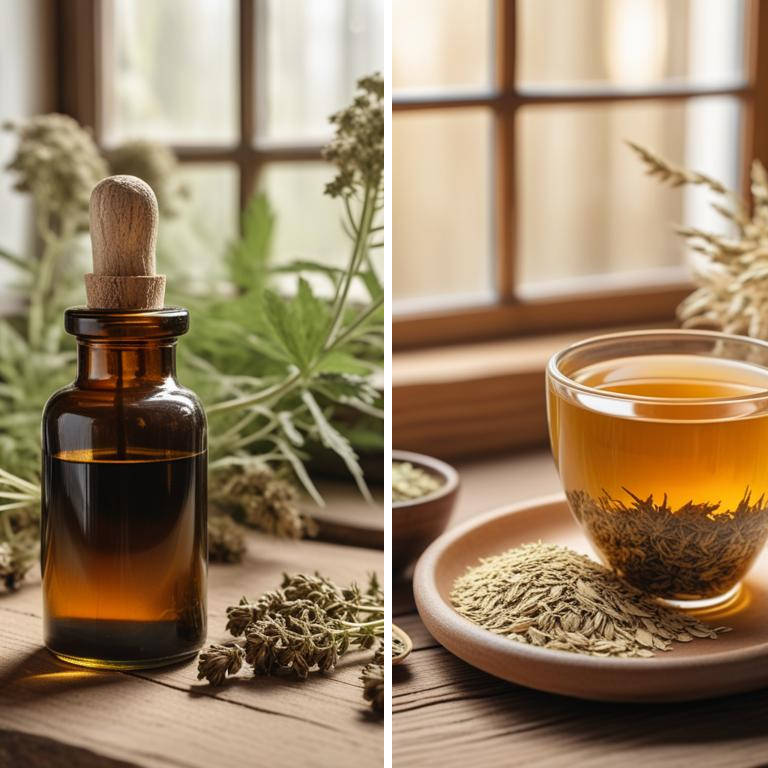
Herbal preparations can be a great help for leg cramps.
One way to use herbs is through a decoction, which is a strong liquid made by boiling herbs in water. Decoctions are good for leg cramps because they can be made with a high concentration of active ingredients, which can be absorbed quickly by the body. For example, a decoction of ginger or cinnamon can help relax the muscles and reduce cramping. Another way to use herbs is through a tincture, which is a concentrated liquid made by soaking herbs in a solvent like alcohol. Tinctures are good for leg cramps because they can be easily absorbed by the body and taken in a small dose. For example, a tincture of valerian root can help reduce muscle cramping and promote relaxation. You can also use herbs in capsule form, which is a convenient way to take herbs without having to make a liquid or tea.
Capsules are good for leg cramps because they can be taken on the go and are easy to swallow. For example, a capsule of magnesium can help relax the muscles and reduce cramping. Tea is another way to use herbs to help with leg cramps. Herbal teas are made by steeping herbs in hot water, which can be a soothing and relaxing way to calm the muscles. For example, a tea of chamomile or passionflower can help reduce muscle cramping and promote relaxation. Finally, you can use herbs in salve form, which is a topical cream or ointment that can be applied directly to the skin. Salves are good for leg cramps because they can be applied directly to the affected area and can help reduce pain and inflammation. For example, a salve of arnica or menthol can help cool the skin and reduce muscle cramping.
It's worth noting that some herbs may interact with medications or have side effects, so it's always a good idea to talk to a healthcare professional before using any herbal remedy for leg cramps.
Additional Resources:
What herbs are contraindicated if you suffer from leg cramps?
If you have leg cramps, it's best to avoid certain herbs that can make them worse.
Taxus baccata, also known as yew, contains a toxic substance that can cause nerve problems and make muscle cramps even more painful. Aristolochia clematitis, or birthwort, has been linked to kidney damage, which can make it harder for your body to get rid of excess salt and fluids that can lead to leg cramps.
Strychnos nux-vomica, or nux vomica, is a highly toxic herb that can cause muscle spasms and make your leg cramps even more severe. Aconitum carmichaelii, or monk's hood, contains a poison that can affect the nervous system and make muscle cramps worse.
Hyoscyamus niger, or black henbane, has anticholinergic properties that can cause muscle weakness and make it harder for your body to regulate its fluids, leading to more frequent and severe leg cramps.
FAQ
Are there any specific herbs that can prevent leg cramps?
Some herbs like ginger and turmeric may help prevent leg cramps.
They have anti-inflammatory properties that can relax muscles. Ginger also helps with blood flow, which can reduce cramping. You can add them to your meals or make tea from the roots.
Some people find these herbs helpful in preventing or reducing muscle spasms.
Is it safe to use herbal remedies for leg cramps during pregnancy?
During pregnancy, herbal remedies can be tempting for leg cramps, but it's best to use them with caution.
Some herbs, like ginger and magnesium, might help, but others can be risky.
For example, certain herbs can cause uterine contractions or interact with other medications, so it's essential to research and understand their effects before use.
Are there any herbs that can reduce the frequency of leg cramps?
Some herbs, like ginger and turmeric, contain compounds that may help reduce the frequency of leg cramps.
These herbs have anti-inflammatory properties and can improve blood flow, which may help prevent cramps.
Some people also use passionflower and feverfew to relax muscles and calm the nervous system, potentially reducing muscle spasms.
Can i combine different herbal remedies for leg cramps?
You can combine different herbal remedies for leg cramps, but be cautious.
Some herbs can interact with each other. For example, if you're taking valerian root to relax, you might want to avoid combining it with ginger, which can also be sedating.
It's best to start with small amounts of each herb and see how your body reacts.
Related Articles
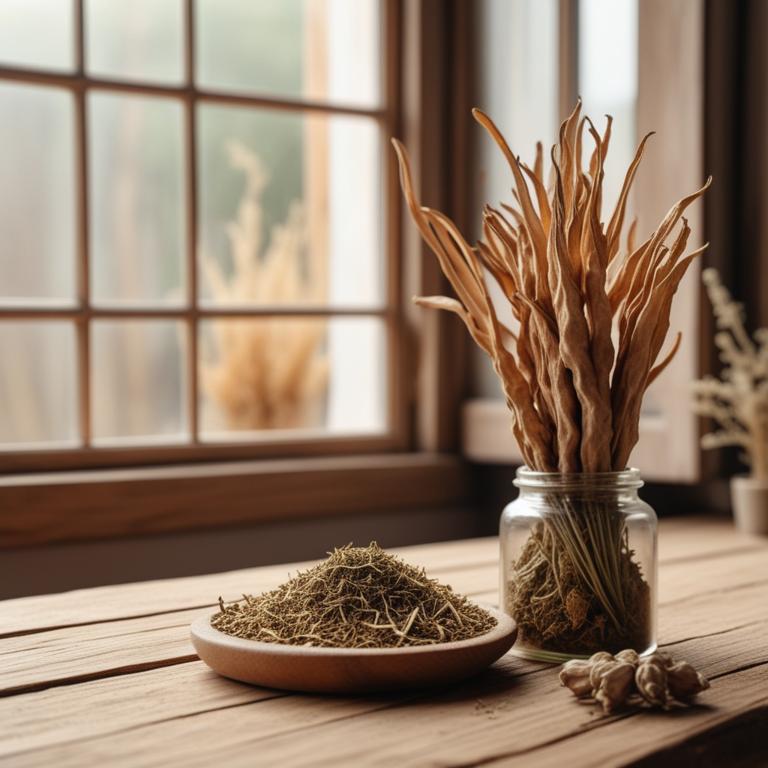
Osteoporosis: Exploring Causes, Medicinal Herbs, and Herbal Preparations
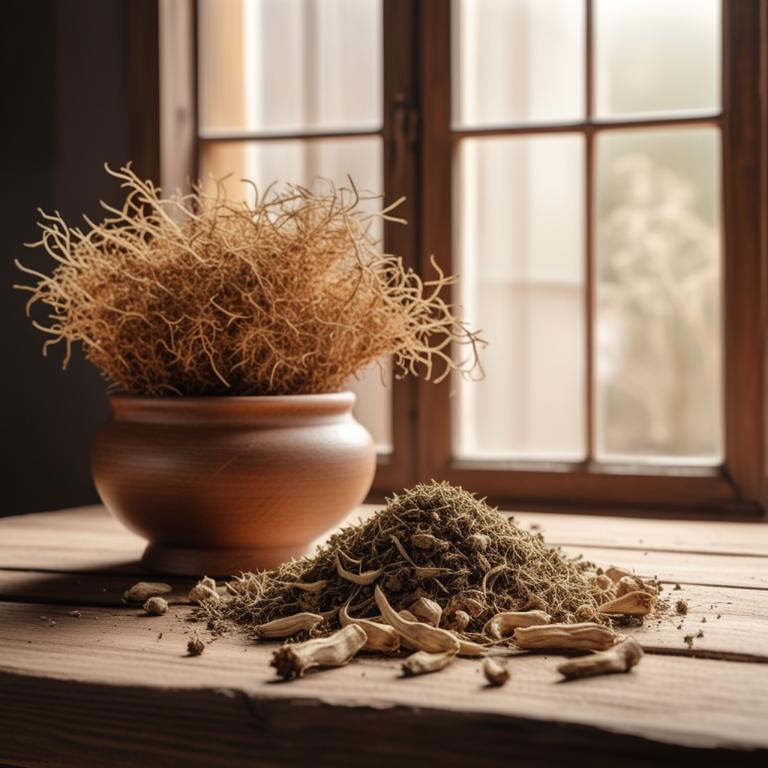
Frozen Shoulder: Causes, Symptoms, and Natural Remedies with Medicinal Herbs
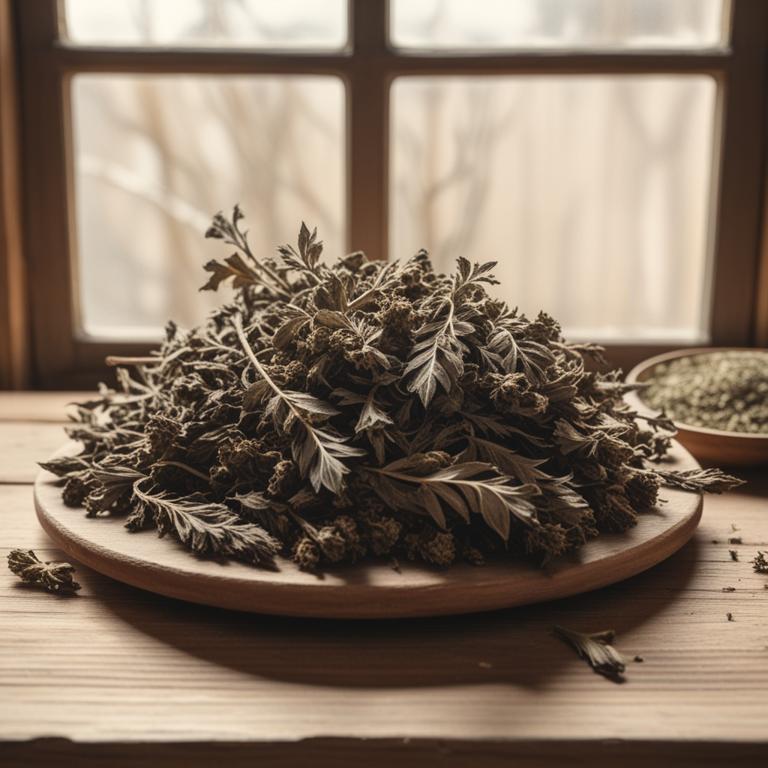
Back Pain Causes and Herbal Treatments for a Pain-Free Life
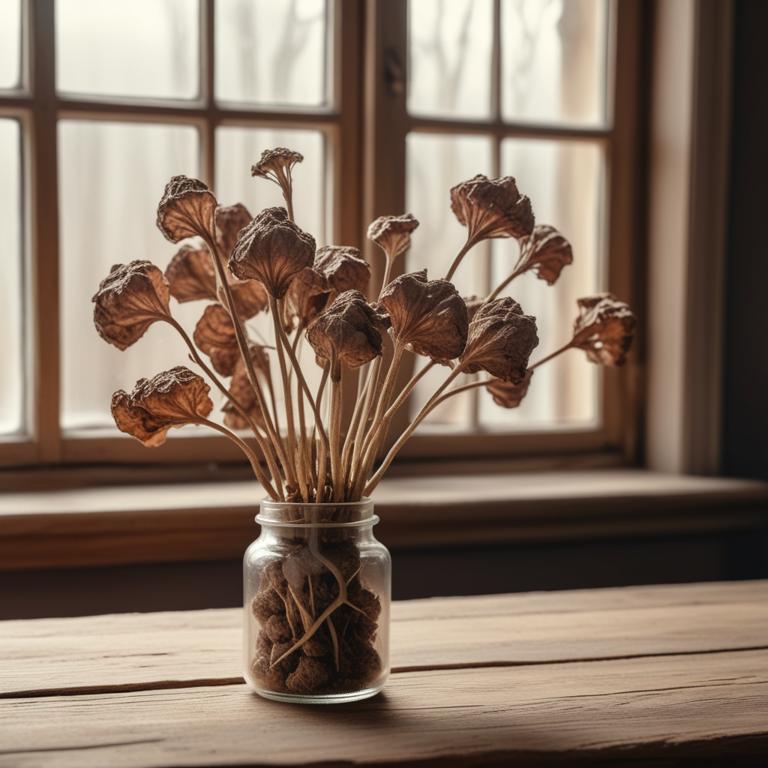
Understanding Arthritis: Causes, Medicinal Herbs, and Herbal Preparations

Causes of Joint Pain and Natural Relief through Medicinal Herbs and Preparations
